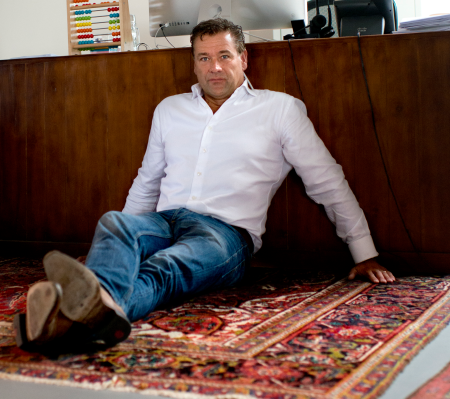myTomorrows, the Dutch startup that wants to disrupt the way patients with unmet medical needs access development-stage treatments — drugs that are still undergoing clinical trials and working their way through a lengthy regulatory approval process — has raised €4.5 million (~$6m) in new funding. The round is being led by London-based tech VC Balderton Capital, and Sofinnova Partners, the Paris-based VC fund known in-part for investing in the life sciences.
The fresh injection of capital and first institutional round for the company, after it previously raised $6 million from “friends and family” and founders, will be used for product development and expansion into new disease areas. In addition, myTomorrows is planning to expand to more of Europe and, most interestingly, to establish business operations in the U.S. — noteworthy given the current debate taking place around the ‘right to try‘ drugs that are still deemed to be at the experimental stage.
This has seen a number of states already legislate on the issue, paving the way for the U.S. to potentially catch up with Europe, where myTomorrows CEO and founder Dr. Ronald Brus tells me greater clarity exists, in terms of regulation and health insurance and providers’ willingness to pay for development-stage treatments before they are widely commercially available.
With that in mind, Brus — who has serious form in the medical industry as former CEO of Crucell, a vaccine company acquired by Johnson & Johnson for $2.4 billion in 2011 — says the startup is watching closely as the situation in the U.S. unfolds, which he says is partly being driven by a heightened awareness for the need for speedy drug development after the Ebola outbreak. I also get the impression that the fast-moving events across the pond is one of the reasons Balderton and Sofinnova chose to invest now.
During our call, Brus’ passion for myTomorrows’ mission is evident.
First and foremost he wants to help patients for whom drugs that could prolong or improve their quality of life do sometimes exist but aren’t yet “approved” and readily available. The platform does this by working with biotech companies to match development-stage drugs with the needs of patients and their physicians and, specifically, easing the heavy bureaucratic and legislative process involved in providing access to those drugs.
This sits in a backdrop that, according to myTomorrows, sees around 1 million patients in Europe with debilitating diseases have few or no treatment options for their condition. In addition, says the company, about 95 per cent of these patients do not meet the eligibility criteria to enter a clinical trial of an experimental drug.
As myTomorrows CFO Erdem Yavuz explained back in February, “there are great drugs out there that will only be available, if ever, in 3-8 years. Most patients can’t wait that long and clinical trials are over selective, or take place in another country, and placebo/control group risks are too high. We allow doctors and biotech companies to help patients with unmet medical needs, given the complicated nature of providing access to development-stage drugs.”
Secondly, myTomorrows wants to bring greater transparency to the way in which patients can access experimental treatment and, by doing so, encourage more competition within the drug development/biotech industry. This also involves providing and capturing better data, such as informing patients how many others are taking the same treatment and what the feedback has been like so far.
Lastly — and more long term — Brus believes that by achieving the first two aims, ultimately the development of new drugs could be sped up significantly, which in turn could reduce the cost of new treatments. His logic is based on the economics of drug development — the need to get a return after many years of R&D but within the 25 year monopoly window afforded by the patent system. If drugs companies were able to recoup that investment sooner, on a macro level the price of new drugs could come down.
The company’s burgeoning business model is also interesting. In the short term, it takes a commission from the biotech companies on its platform per patient who successfully accesses development-stage treatments, in recognition for the work myTomorrows carries out. But, more ambitiously, in some instances myTomorrows will earn a royalty should those drugs make it to full commercial launch — a move that sees the startup share the risk with the drug development companies it works with.
This could also potentially generate huge long-term but delayed revenues for the company, prompting me to joke to Brus that myTomorrows just needs to stay in business in the meantime. “That’s what the funding’s for,” he quips back.
